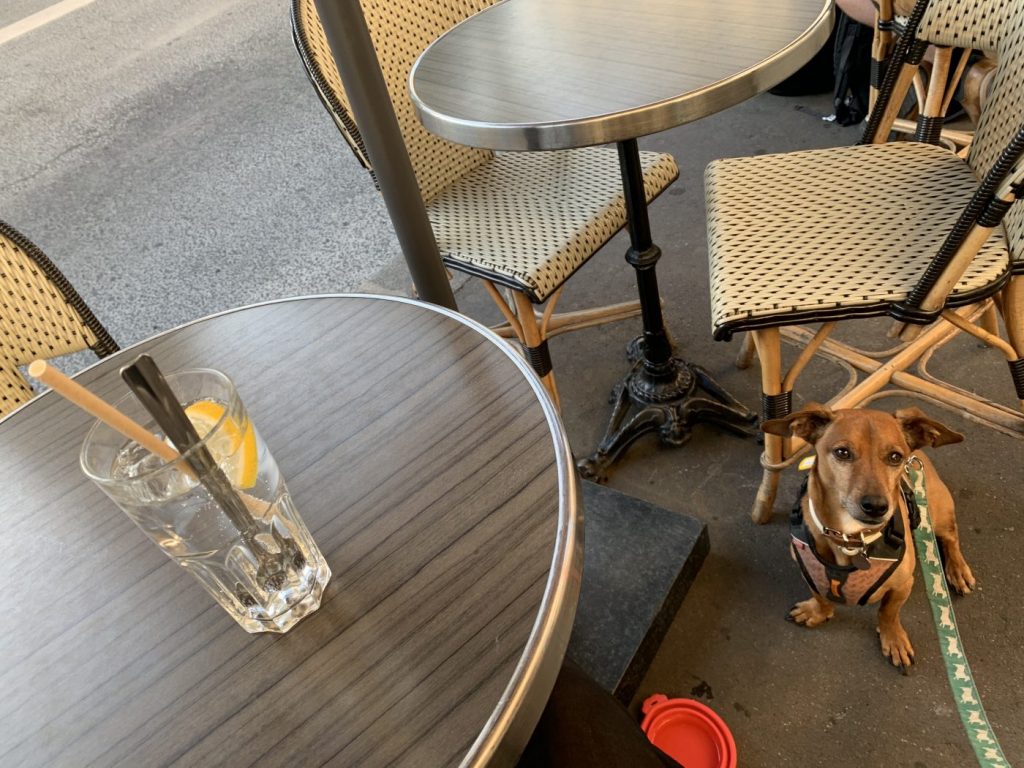Many of us living with endometriosis will experience irritable bowel syndrome-like symptoms, chronic bloating, and soaring pain levels after eating certain foods. This is why dietary changes can benefit us, and why the subject of eating for endometriosis is popular on patient forums and social media.
An endometriosis diet, or “endo diet,” is anti-inflammatory. It involves eliminating foods like red meat, alcoholic drinks, and ingredients such as dairy, gluten, and refined sugar, among others. The idea is to lessen the amount of inflammation in our bodies, and in doing so, decrease levels of bloating, pain, and discomfort.
I went plant-based almost three years ago. I also quit gluten, and currently barely drink any alcohol. It took me a lot of trial and error and a couple visits to a nutritionist to locate the particular foods that triggered my flare-ups.
Along the way, I have benefited enormously. I have also learned a few surprising lessons.
Not all free-from foods work.
We are fortunate to live in an era in which we have entire supermarket aisles aimed at the free-from culture. Yet, I soon discovered something very interesting. Just because something is free from standard inflammatory ingredients doesn’t mean it won’t end up causing me just as much bloating as the real thing.
Some free-from versions include a wide variety of ingredients to mimic the foods offered to those without dietary restrictions. This means that, potentially, some of those ingredients can be just as difficult to digest, or even be just as inflammatory as the regular versions.
For instance, I stopped eating gluten-free bread because the additional ingredients used to make it ended up causing me the same amount of inflammation as real bread. I switched to sourdough, a more digestible bread, and feel much better.
Sometimes a forbidden ingredient is OK.
During my early stages on the endometriosis diet, I eliminated coffee. Yet after six months, I noticed no difference in my IBS-like symptoms. I went back to drinking a maximum of one cup a day (two if I am feeling fancy) and take coffee-free days in between. This method works for me.
I am aware of caffeine’s effect on endometriosis. Too much caffeine can create inflammation and aggravate the digestive system. Personally, being mindful of how much I drink and respecting my limits makes it possible for me to regularly enjoy my favorite hot drink.

On any cheat days, we need to be mindful of our periods.
Eating differently than anyone else can often feel like a daily slap in the face. I have been known to see an Instagram post of what looks like heaven on a plate, and a few minutes later, order the filthiest of pizzas. Cut to an hour and a half later, and I am regretting all of my life choices. I am also nursing a very inflated stomach.
This is why I have cheat days. These are days when I allow myself anything that feels like a treat, whether sweet or savory. Generally, I give myself one cheat day per week. However, I do this while keeping an eye on my cycle. If I eat a lot of sugar or gluten just before my period, I’ll fear the worst. I will end up horizontal, crying ugly tears, with no one to blame but myself.
Eating for endometriosis is no easy feat.
It is a long, tricky journey. Yet having found what works for me, I feel so much better, inside and out. I am 100% certain I will never go back to eating as I did before.
However, not every change will bring enormous benefits, and some elimination diets can become quite grueling. Some foods that we thought were safe will turn out to be digestive upsets. That’s why I believe it is a very personal exploration, but one that’s worth every effort.
***
Note: Endometriosis News is strictly a news and information website about the disease. It does not provide medical advice, diagnosis, or treatment. This content is not intended to be a substitute for professional medical advice, diagnosis, or treatment. Always seek the advice of your physician or other qualified health provider with any questions you may have regarding a medical condition. Never disregard professional medical advice or delay in seeking it because of something you have read on this website. The opinions expressed in this column are not those of Endometriosis News or its parent company, BioNews, and are intended to spark discussion about issues pertaining to endometriosis.

